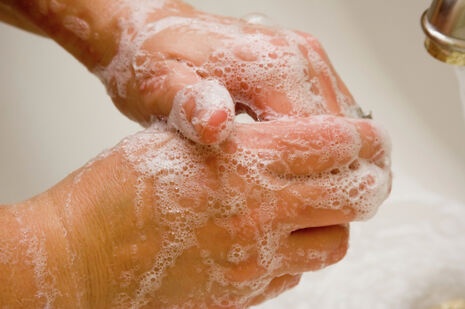OMG are you so OCD?
The trivialisation of OCD means this serious mental health condition is misunderstood

I have become able to predict what is going to happen when a person finds out about my OCD. It isn't necessarily their fault; it is just a new concept to them, so they say things that they probably think are totally original. And I have realised that this probably isn't the reaction that other mental health conditions get when someone first finds out you have them.
If someone told you they had depression, or an eating disorder, you probably wouldn't start probing them about why they have it, or make assumptions on how they manifest themselves. I'm not saying I am angry about people's curiosity, I have been open about my OCD since I was 14; but it's now seven years later and the reactions I get are pretty much the same. I have to wonder whether the reason for which the sentence "So do you, like, switch light-switches on and off all the time?" is such a frequent occurrence in my life is because OCD is still not taken seriously as a mental illness.
At my secondary school, there were four people out of 129 who had OCD. That's a significantly higher proportion than the one-in-100 national average. There were also many instances of depression, anxiety disorders and eating disorders (I will save the rant about girls' grammar schools for another day). Although by the time I got to sixth form and then university, people were a lot more understanding and respectful of my OCD. Whenever I became friends with someone new, the same remarks would come up: "So are you a germ freak then?”. They might tell me that "my Uncle always has to check that the oven is switched off before he can go to bed!”, “I think everybody has OCD really, we all have our own little quirks” or that “OCD isn't a real mental illness, is it? It's not like anorexia or depression.”
While I am grateful that people take an interest in my mental health enough to ask about it, thus giving me the opportunity to educate them on the real impacts of living with the disorder, it is quite frustrating to always have this as your interlocutor's base impression of the condition. Asking someone if they are a 'germ/neat freak' is incredibly offensive and trivialises the daily struggle they go through to remain calm in a world of unbearable anxiety.
What's more, comparing someone's diagnosed mental illness to the fact that someone on your road uses gloves to put their bins out just shows you're not taking this person's mental health condition seriously, and although everybody does have their own personal preferences of how to do certain things, that does not mean that we all have OCD. OCD is diagnosed when the obsessive traits you have cause you to spend at least several hours every day undertaking rituals to rid yourself of anxiety. So no, I am not worried if your Gran rinses the dishes before she puts them in the dishwasher; I'm sure she is totally fine.
And finally, to those who still think that OCD 'isn't a real mental illness', you would be surprised to see the overlap between Obsessive Compulsive Disorder and eating disorders. Both are anxiety-based mental disorders, and although it is more frequent for eating disorders to pose a serious health risk than OCD, it doesn't rule it out completely, and it also doesn't mean that people with OCD aren't affected by what they have to face day to day. Furthermore, studies have indicated that there is less grey-matter in the region of the OCD-sufferers’ brains which is important for suppressing habits, along with an imbalance in levels of the neurotransmitter serotonin – these physical differences between OCD-sufferers and other people are thought to be genetic. Additionally, the World Health Organisation (WHO) has ranked OCD in the top 10 most disabling illnesses of any kind, in terms of lost earnings and diminished quality of life.
What is truly frustrating about the conversations I have had over and over again with new people is that I know exactly where the stereotypes and misinformation come from: people who say "I'm really OCD about that". Just because you like your desk to be organised, or your DVDs to be in alphabetical order on the shelf, that doesn't mean you have OCD. Even less so does it mean you "are OCD" (which is literally impossible, since what you are saying is that you are Obsessive Compulsive Disorder).
Only once people stop the daily trivialising of mental illness in this way will people like me be able to tell someone about their condition and not be bombarded with offensive and pointless questions, when we could be making a positive difference to get rid of the stigma around talking about your mental health; because at the moment, I don't blame anyone who keeps their OCD to themselves, for fear of being told that their 'little quirks' are 'cute'.
 News / Fitz students face ‘massive invasion of privacy’ over messy rooms23 April 2024
News / Fitz students face ‘massive invasion of privacy’ over messy rooms23 April 2024 News / Climate activists smash windows of Cambridge Energy Institute22 April 2024
News / Climate activists smash windows of Cambridge Energy Institute22 April 2024 News / Copycat don caught again19 April 2024
News / Copycat don caught again19 April 2024 Comment / Gown vs town? Local investment plans must remember Cambridge is not just a university24 April 2024
Comment / Gown vs town? Local investment plans must remember Cambridge is not just a university24 April 2024 News / Emmanuel College cuts ties with ‘race-realist’ fellow19 April 2024
News / Emmanuel College cuts ties with ‘race-realist’ fellow19 April 2024




